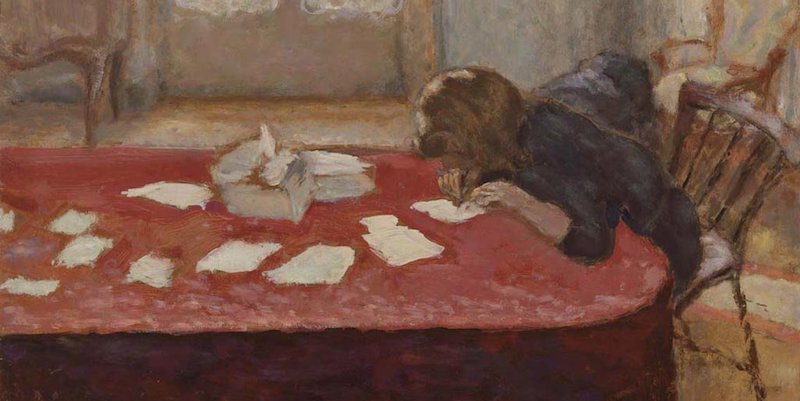There’s no best place to find out every book you’ve ever written is about to go out of print. But I’d imagine 30,000 feet in the air, two weeks after having a kid, is low on the list of preferred options to learn that particular bit of bad news.
Halfway through a cross-country flight to my kid brother’s wedding I got a Facebook message from a friend suggesting Polis Books was about to shut down. The Jersey-based indie crime publisher – which helped launch names like Rob Hart, Cynthia Pelayo, Alex Segura and many others — was the home of my Russell Avery series. The only two books I’d ever published were about to disappear from all shelves save for the ones in my house. The third in the series, which I’d sold to Polis last year but foolishly written most of before receiving my advance, was now homeless.
I’m not one of those writers blessed with a lot of confidence, so the doom spiral came quick. You haven’t had a book out since 2021. No one is gonna pick you up now. This is what you get for not landing with a bigger house. Somehow, this is your fault.
Polis, of course, isn’t the first indie publisher to shut down, and sadly it won’t be the last. But the end of your publisher’s story isn’t the end of yours. I’ve had a few months to dig out from the despair of losing my only foothold in the publishing industry and come out the other side better for it. So, in the hopes of making that rollercoaster ride a little smoother for the next batch of authors on the tracks, I chatted up a few other writers whose works were previously marooned by industry collapse to put together a survival guide on what to do when your publisher dies.
Step 1: Grieve Before You Grind.
First off, be kind to yourself.
Few, if any, responses to this situation are overdramatic. Something you created, that you spent weeks and months and years building from a stray idea in the shower or grocery store into a publishable work, just disappeared on you, likely without warning. Get that comfort food. Pour another glass of wine. Binge watch something. Do whatever it is you need to do to distract yourself from the impact crater of your publisher’s demise.
I touched down at my brother’s wedding in Virginia and suppressed the news with sliders and Irish Whiskey, not telling a single soul among my family and friends what had happened for days. Fellow Polis survivor Heather Levy – whose sex-positive Anthony-nominated debut Walking Through Needles was published by Polis in 2021 – said she popped an edible and had herself “a good cry (or three).” Then she thought about what came next.
“Here’s the best advice I can give to authors in unfortunate situations like this: look forward, always,” said Levy, who has since published her second novel, Hurt For Me, to acclaim through Montlake. “The only thing you can control in publishing is your writing, and it was your writing that got you a book deal in the first place. Focus on what’s next and make it the best damn story you can.”
Step Two: Know Your Rights/There’s No Right Path
Dealing with the fallout of a publisher collapse can be a lot on an author, especially those who don’t have representation, a common occurrence in the case of those who publish independently.
You’re most likely staring down three options when a publisher announces plans to shutter:
- Pull your rights and try to rehome the books with another publisher.
- Let the publisher try to sell your books as part of a catalogue wide sale to another publisher.
- Patience.
Each path, of course, has its advantages and pitfalls, so you need to pick the path that makes the most sense for you. Conventional wisdom in publishing says that rehoming an existing work or series can be an uphill climb, as most publishers might imagine a book has already reached its audience. And if you revert your rights without an agent, you may be going hat in hand to publishers, leaving you struggling to negotiate a good deal or any deal at all. At the same time, reverting rights means you have total control over what happens to your work, and you control the terms of any sale.
Letting your soon to be out of business publisher decide your fate could make a sale easier – according to a recent Publisher’s Weekly article, 18 authors from Polis’ backlist saw their books, and in some cases entire series, acquired by Datura – but in such an arrangement, you have no say in the terms. Your books could end up with a publisher you’re not fond of, and it’s unlikely you’ll make much, if anything, off the sale.
The tradeoff, of course, is that your books live on with little fuss. In the months I spent knowing the best place to buy a Russell Avery novel was out of a box in my garage, this seemed acceptable.
The third option, the one that involves waiting, may seem the most counterintuitive. Your publishing career is on life support, don’t you have to do something now? Well, patience worked out for an unnecessarily modest superstar author named Kellye Garrett.
Before publishing her 2022 breakout Like A Sister, Garrett was the author of the Detective by Day mysteries through Midnight Ink, an imprint of Llewyn Worldwide. Part cozy part Hollywood satire, the books were met with rave reviews and Garrett was working on the third one when Midnight Ink announced plans to shutter in 2018.
“I always say that if you asked 2017 debut author Kellye where she’d be in 2024, she’d tell you that she’d be publishing her eighth Detective by Day mystery,” Garrett said. “I started my career fully intending to just write my funny little ‘Black girl solves the crime for once’ series.”
What others might have seen as a gut punch, Garrett saw as an opportunity to reinvent.
“Truth was, I was already struggling with writing a third book when I got the news. I commend people like Janet Evanovich who are 30-plus books deep in a series because I was making the same jokes each book while trying (and failing) to balance what people loved about the first two books with something new and exciting,” she said. “I was burnt out and wondering if I should take a break from it for a bit.”
Which leads us to…
Step 3: See It As An Opportunity.
I will always owe the start of my publishing career to Jason Pinter and Polis Books. He said “yes” to my debut novel when a lot of other publishers said “no” and showed unmatched enthusiasm for the misadventures of my ex-Jersey journalist. Dozens of writers would surely share similar stories of Polis as a launching pad, and Pinter handled the shutdown of the press about as well as anyone could have asked.
But, if we’re being honest with ourselves, a publisher that’s fallen into disrepair isn’t great for your career. It’s fair to ask if your books were getting all the support they could from a business enterprise that was bleeding money.
Losing your publisher can be a catastrophe. But it can also be a second chance.
For Garrett, that meant time to work on her stand-alone, Like A Sister, which launched her career into another stratosphere. The offers she received to resuscitate the Detective by Day series were all contingent on her writing a sequel, which she wasn’t keen on doing.
Patricia Smith’s debut novel, Remember, was among the three launch titles of Polis’ diversity-focused imprint, Agora, back in 2019. The book earned blurbs from Garrett and New York Times best-seller Alafair Burke, but the young author hadn’t published anything else in the five years since, while working on her follow-up and getting her film degree.
Like me, Smith thought it was curtains for her writing career when Polis announced its closure. She didn’t have an agent and was admittedly confused by discussions of reverting her rights or letting Polis try to sell the book elsewhere. So, she turned to one of her college professors, who was founding a literary agency, and in Polis’ collapse suddenly found herself with representation. Now, Smith’s book – which had fallen off bookshelves in the ensuing years – will get a fresh coat of paint as part of Polis’ bulk sale to Datura.
For Smith, rights reversion might have been a mistake, one she said she was talked out of making by colleagues.
“If you’re an aspiring writer, let’s say you do get published without an agent. Please, please find other authors. Because if I didn’t have anyone like that, I don’t know what I would have done,” she said. “Find other people, make your circle.”
That last bit of advice from Patricia helped save Russell too. I was inclined to leave my books in Polis’ hands to rescue, convinced that it was impossible to transfer an ongoing series to a new house. But several people in my writer’s Discord (sup, Escape From Twitter Mountain) convinced me that my books had received enough praise and sold well enough that there would be a market for them. A little over three months, after I learned of Polis’ downfall on that plane, I signed a deal with the good people at Counterpoint to re-publish the first two Russell Avery novels and the next book in the series, Surviving The Lie, due out sometime in the not-too-distant future. I went from a publisher that couldn’t keep the lights on to one that has distribution through Penguin Random House in the span of one fiscal quarter.
All of this is to say, there is no straight-line path from your publisher’s collapse to your next publisher, but there are paths. You can despair, but then you can do something about it. Whether it’s through a new project, a rights transfer or striking out on your own to revive your books, your publisher’s closure is the end of their story. It’s not the end of yours.

















